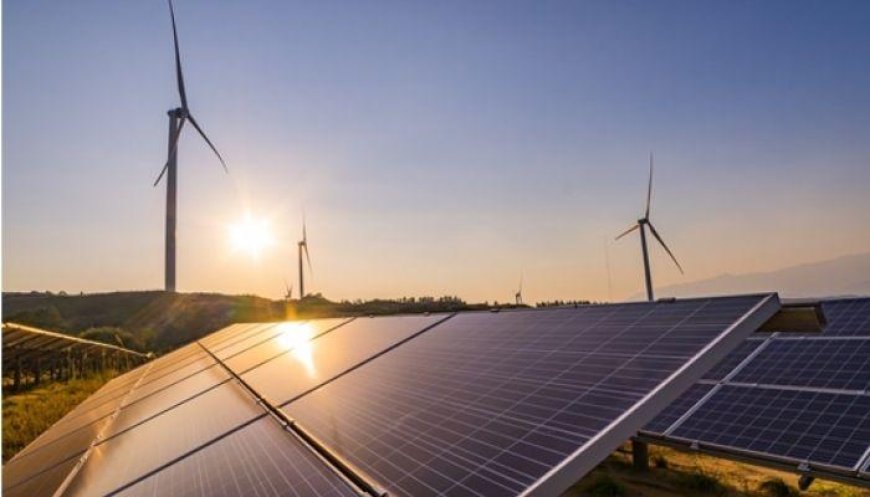Solar import ban risks backfiring in energy-starved Nigeria”

When Chidi Okonkwo, a businessman who relies on solar panels to keep his grocery shop running, first heard of the government’s plan to ban solar panel imports. He likened it to “outlawing umbrellas during the heaviest rains.
In a country where the national grid supplies only a few hours of electricity a day, solar energy has been her lifeline. It powers small businesses, lights homes, and keeps vital medical equipment running in rural clinics.
For many, solar energy is not a luxury, but a necessity. It powers small businesses, lights homes, and keeps vital medical equipment running in rural clinics.
The federal government is playing the Presidential Executive Order No. 5 card which prioritises local content in science, engineering, and technology sectors.
Uche Nnaji, the minister of science and technology argued that Nigeria is making significant investments in renewable energy infrastructure and can meet its solar energy needs locally.
We have lithium in abundance here in Nigeria, so Mr. President is already taking action. The lithium we have will be processed and used as batteries for electric vehicles,” he stated.
But energy experts said the plan is reminiscent of August 2019 when Nigeria closed its land borders altogether to stamp out smuggling, often from neighbouring Benin, with rice being one of the main targets.
Five years later, food prices in Nigeria have been rising and have shown no sign of declining, despite the reopening of the land borders, as farmers are grappling with more challenges.
“They know the prices will go up; the price of solar panels in Nigeria is already high, and a ban on imports could make them even more expensive,” Aisha Mohammed, an energy analyst at the Lagos-based Center for Development Studies said.
Mohammed added, “This could make it difficult for many Nigerians to afford solar panels, and it could also discourage businesses from investing in solar power.”
Jide Pratts, country manager of Trade Grid, said the plan to ban solar import is a hasty call.
“If we look around Nigeria, in terms of stopping importation for so many things, to try and increase local capacity, I’m struggling to think of one major thing that has worked. We start these things in a rush,” Pratts said on a live TVC program monitored by BusinessDay.
He admitted there is lithium in Nigeria but “we’ve not been able to extract it in commercial quantity, standardise it.”
You do not stop imports until you provide incentives for local capacity to meet at least 70 percent of local demand. Even then, when that happens, why stop it? Nigeria needs to decide if it wants a free market or a controlled market. We must encourage competition,” Pratts said.
Other experts surveyed by BusinessDay point out that Nigeria’s local solar manufacturing industry is still in its infancy. While a few assembly plants exist, they lack the scale to meet the country’s massive demand.
“More importantly, locally produced solar panels are often more expensive than imported ones, putting them out of reach for average Nigerians,” Chioma Nwachukwu, a project manager for a solar energy nonprofit in Kano said.
BusinessDay’s research reveals that imported solar systems in Nigeria vary widely in cost, from N400,000 for a basic setup to N20 million for a fully off-grid solution, reflecting differing energy needs and levels of grid independence.
Entry-level systems (N400,000) provide a simple introduction to solar power, while more advanced setups offer greater savings.
For example, Juwon Adesanya, a social media strategist, invested N4 million in 2024 on a 5kVA solar system with six 400W panels and a 5.12kWh lithium battery. This powers multiple appliances, including TVs, freezers, laptops, and a washing machine.
For larger energy demands, high-end systems (N10–N30 million) provide near-total independence. A N10–N20 million 10KVA hybrid system includes a 10kWh inverter, 10KWh battery, and 9kWh solar panels, supporting appliances like microwaves, multiple fans, and TVs with 12–15 hours of backup power.
The most advanced option, a N30 million 15KVA system, features a 12kW inverter, 33kWh battery storage, and 11kW solar panels, capable of running three air conditioners and fridge-freezers simultaneously while providing 15 hours of backup power—ideal for both homes and businesses.
If the ban takes effect, experts fear a surge in prices, putting solar energy out of reach for low-income families.
“We’re talking about a potential 40-60 percent price increase,” Tunde Olawale, a renewable energy consultant warned. “That will push people back to generators and dirty fuels, worsening pollution and energy poverty.”
The potential ban could hit hardest in rural areas, where solar energy is often the only source of electricity. In villages far from the national grid, small solar systems power homes, schools, and health clinics.
Many of these systems are provided by off-grid solar companies that rely on imported equipment.
For Adebola Ogunleye, a frozen food seller, the stakes are personal.
“If solar becomes too expensive, I’ll have to raise my prices,” he said. “But my customers are struggling too. How much longer can we end.”

 admin
admin 


